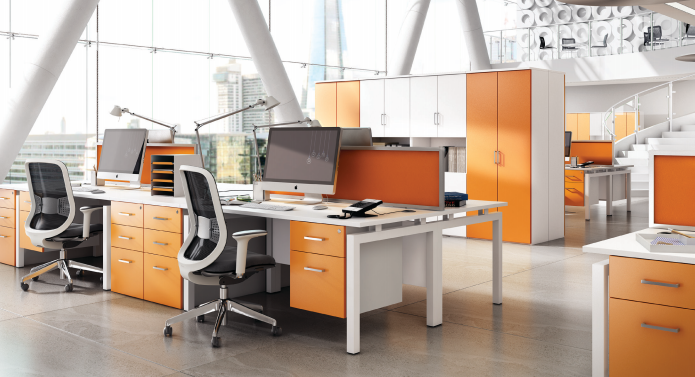iAfrica survey reveals workers want more flexibility in the post-Covid-19 office.
According to iAfrica’s study on what workers want from the workplace following Covid-19, people have proven that they can be productive while working from home, and expect offices to adapt.
Linda Trim, director at Giant Leap, one of South Africa’s largest workplace design specialists, said the question is how to modify the physical office as a place for culture, connection, community-building, and innovation while still allowing for that flexibility.
iAfrica’s research revealed that the majority, or 71 percent of those surveyed, would like to go back to an office that is mostly open, despite concerns about the pandemic. Flexible seating and self-identifying neighbourhoods were a preference, with the survey showing that that most people’s preference leaned towards having an assigned desk. Only 17% were willing to share, which could be a result of the current health crisis. When offered the choice to work in a more hybrid way, just over half of workers or 51 percent would be willing to trade their assigned desk for greater flexibility to choose when and where they work.
There is now an expectation that offices provide video conferencing that will help connect distributed teams. Most spaces will need to be enabled for video conferences, considering factors such as acoustics, degree of enclosure, background sightlines, technology, and more. Linda explains that, “There will be a need to overhaul the protocols and etiquette around how we use these spaces. With video conferencing potentially occurring not just in meeting rooms, but in semi-enclosed and open spaces as well, the office may feel buzzier than before.”
With fewer workers typically on site in the future, the balance of spaces at the office will need to shift to meet workers’ needs. Allocating fewer workstations to people frees up space that can be repurposed for a wider variety of collaborative spaces. However, companies and organisations cannot eliminate workstations entirely, because the survey found that having the space to focus on independent work is the third highest reason workers go into the office.
In a more remote work environment, awareness of what others are working on outside one’s own team is particularly important to building and maintaining company culture and employers are expected to create space for culture, mentoring, and connection.
The research revealed that fewer than half of workers participated in coaching or mentoring sessions during the pandemic, and those who did were disproportionately in executive, senior leadership, or managerial roles.
Over video calls, it is more difficult to see when team members are struggling and more difficult to discern how best to support them. Having a physical space to connect in-person and develop team and mentoring relationships is important not only to individual growth but also to an organisation’s long-term culture.
The survey demonstrates an acceleration of a trend that has been identified over the last decade, that people working in a hybrid arrangement report the highest satisfaction with their work situation.
“Now, with the pandemic, many more workers have gained the experience of working from home and our latest survey results show that people’s office expectations are changing to match,” Linda concludes.












